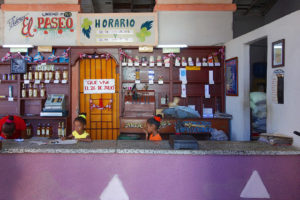
PYMES in Cuba: A false start
HAVANA — This past week, big headlines in the foreign media and websites announced that Cuba had legalized medium, small and microbusinesses. Some bold readers described the “measure” as a “success” that “would allow the hiring of workers” and “would fill the existing legal void.”
All that was caused by the publication, for public discussion, of two documents from the Seventh Congress of the Communist Party of Cuba. However, in the heat of the socio-economic changes, a massive mistake in interpretation was made.
True, the Conceptualization of the Cuban Economic and Social Model of Socialist Development acknowledges in its initial pages the existence of private property. And therein lies the fundamental transformation: where it earlier said “self-employed labor,” now it says “private property.”
That’s no small matter, because it calls the different forms of private property by their precise names. In addition, it is consistent with the caveats of many economists and with the future of the labor sector itself. But that’s all it is. No more, no less.

Item 180 of the Conceptualization says: “Cuban natural persons may organize the following types of enterprises: (1) Small businesses, carried out basically by the worker and his family. (2) Private enterprises on a medium, small or micro scale, according to the volume of the activity and the number of workers recognized as legal persons.”
Strictly speaking, there’s nothing new there, because in April President Castro spoke about it during his speech inaugurating the party Congress:
“The acknowledgment of the existence of private property has generated honest concerns in not a few of the participants in the discussions prior to the Congress, who expressed their preoccupation that, by so doing, we’d be taking the first steps toward the restoration of capitalism in Cuba,” he said.
“It is precisely a question […] of calling things by their name, not to take refuge in illogical euphemisms to conceal reality.
 “The increase in self-employed labor and the authorization of the hiring of a labor force have led in practice to the existence of medium, small and ‘micro’ private enterprises that today operate without the necessary legal personality and are ruled by law under a regulatory framework designed for natural persons engaged in small businesses conducted by the worker and his family.”
“The increase in self-employed labor and the authorization of the hiring of a labor force have led in practice to the existence of medium, small and ‘micro’ private enterprises that today operate without the necessary legal personality and are ruled by law under a regulatory framework designed for natural persons engaged in small businesses conducted by the worker and his family.”
The published documents are not binding; in other words, they have no legal or administrative application. From the start, the document explains that “the objective of the Conceptualization is to serve as a reference or conceptual/theoretical guide” and adds that “it is not the purpose of this document to state how the Model will be updated, e.g., the concrete actions and measures utilized to achieve these objectives.”
Once again: there are no such “measures.”
References to the complementary role of private property, the need for the State to concentrate on the tasks assigned to it, the liberation of the productive forces, the recognition of the market, are restatements of budget lines that were submitted during the Sixth Party Congress in 2011. In other words, they are reiterations of political projections that have accumulated in the past five years.
The Official Gazette has not published any rulings on the subject in the past several days. In addition, Raúl Castro referred in April to the levels of dissent inside the country’s governing circles — on one side, those who push for changes; on the other, those who slow them down.
We might expect the latter to raise a few more obstacles before the first PYMES are formally approved by that name. [Pequeñas y Medianas Empresas = Small and Medium Businesses.]
For the owners of Cuba’s small and medium businesses nothing has changed so far. A false start. No further news — yet.
Progreso Weekly authorizes the total or partial reproduction of the articles by our journalists, so long as source and author are identified.


